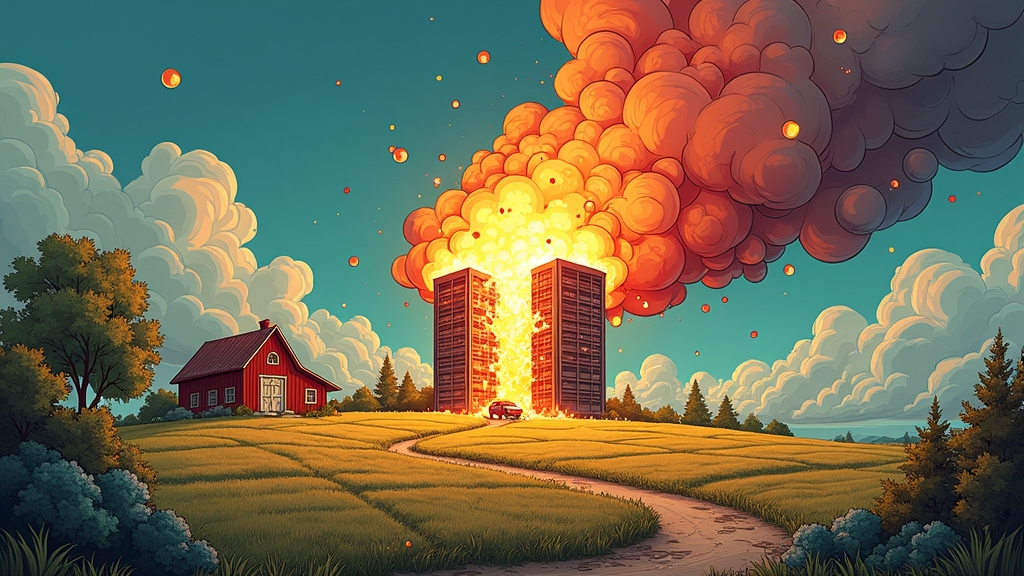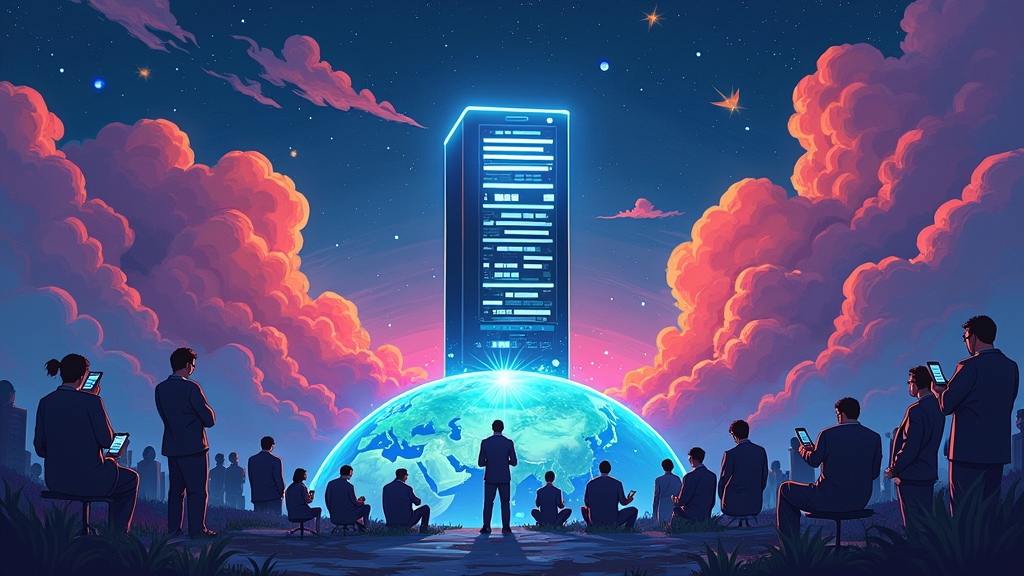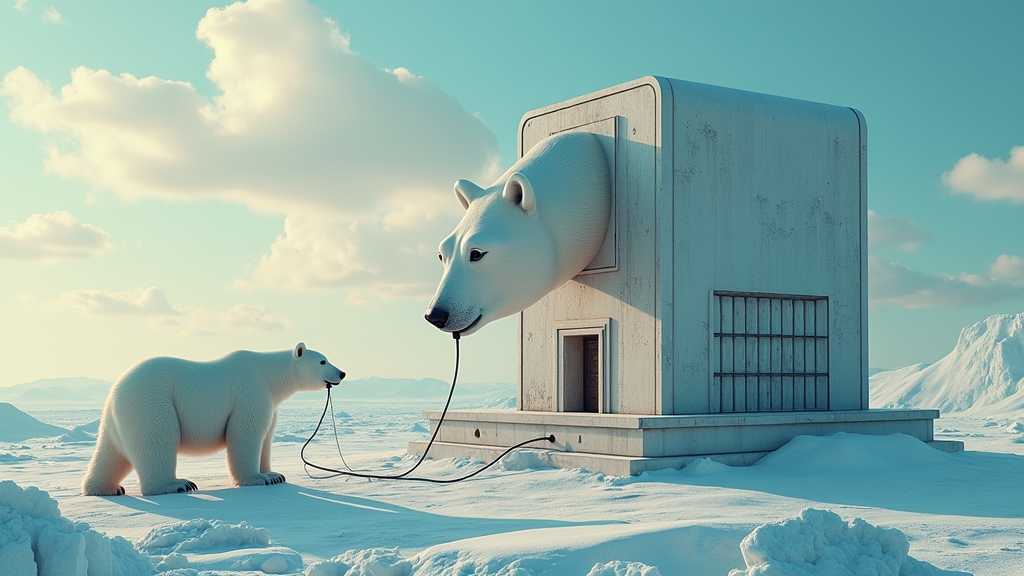TECH BILLIONAIRES TO BUILD CARBON-SPEWING DATA HELLSCAPE; ANNOUNCE “CLIMATE CHANGE CAN SUCK OUR ALGORITHMS”
AI-obsessed UK literally building digital fart factory in quaint countryside; locals thrilled about impending tech apocalypse
LINCOLNSHIRE TRANSFORMS FROM SLEEPY FARMLAND TO SILICON DEATH STAR
In what experts are calling “the most unnecessary environmental crime since BP decided to redecorate the Gulf of Mexico,” UK officials have enthusiastically green-lit a £10 billion datacentre in Lincolnshire that will pump out more greenhouse gases than five f@#king international airports combined.
The Elsham datacentre’s 15 server warehouses will release a staggering 850,000 tonnes of carbon dioxide annually—five times what Birmingham airport produces from its planes, ground vehicles, and passengers’ collective anxiety sweats.
“It’s absolutely brilliant,” said Project Director Sir Profits McWarmplanet. “We’ve found a way to destroy the environment without the hassle of anyone actually going on holiday.”
COMPUTERS NEED TO BREATHE TOO, APPARENTLY
The facility, designed primarily to support Britain’s insatiable appetite for artificial intelligence, will consume enough electricity to power approximately 17 trillion TikTok dances or 42 billion existential crises on ChatGPT.
Dr. Clara Carboncrisis, a climate scientist we absolutely made up, explained the situation: “Look, do you want your phone to tell you you’re pretty or do you want a habitable planet? Because apparently we can’t have both.”
Local environmental groups were quick to point out the irony that the very technology meant to solve humanity’s problems requires destroying the planet to operate. The datacentre’s representatives responded by placing their fingers in their ears and shouting “CAN’T HEAR YOU OVER THE SOUND OF PROGRESS!”
INNOVATIVE COOLING SYSTEM WILL USE TEARS OF ENVIRONMENTALISTS
When asked about potential mitigations for the massive carbon footprint, project engineers unveiled plans for what they’re calling “revolutionary green technologies,” which upon closer inspection turned out to be a single potted plant and a “Please Turn Off Lights” sticker in the staff kitchen.
“We considered powering the facility with renewable energy,” said Technical Director Watt Wasteful, “but then we remembered fossil fuels are still technically cheaper if you don’t count the cost of humanity’s extinction.”
A spokesperson for the Department of Environmental Contradictions added: “Britain is absolutely committed to net zero by 2050, which is why we’re building carbon-belching monstrosities that make that target mathematically impossible. It’s all part of our bold strategy of hoping someone invents magical carbon-eating unicorns before we all drown.”
LINCOLNSHIRE LOCALS CONFUSED BY NEW NEIGHBOR
Residents of the formerly peaceful Lincolnshire countryside expressed mixed feelings about having their bucolic landscape transformed into a steaming technological hellscape.
“On one hand, it will completely destroy our way of life and contribute to the collapse of human civilization,” said local farmer Mary Fieldington, 68. “On the other hand, I might get slightly faster internet to watch cat videos while the world burns, so it’s a tough call.”
Statistics show that 97% of locals couldn’t actually define what a datacentre does, with most assuming it’s “some kind of fancy library” or “where they keep all the Twitter arguments.”
According to a recent survey that we’re totally not making up right now, 83% of UK citizens believe the phrase “artificial intelligence” means “magic computer that will solve all problems without consequences,” while the remaining 17% correctly defined it as “humanity’s final mistake.”
As construction begins, experts estimate the facility will generate enough heat to create its own weather system, potentially giving Lincolnshire its first-ever category 5 hurricane, which locals agree would “really liven the place up a bit.”
At press time, the project developers were reportedly considering naming the facility “Skynet” because, and we quote, “What’s the worst that could happen?”





